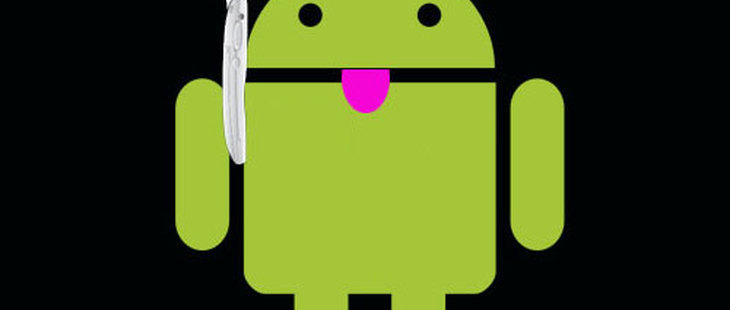
When Google dropped a news bomb this morning with their acquisition of Motorola’s phone business, analysts scrambled to understand what on earth possessed the folks at Mountain View to drop $12.5 billion dollars to get (back) into the handset game.
After all, the move is a very strange turnaround for the search giant. Over the past two or three years, Google has built up its mobile presence by making Android, their phone operating system, freely available to handset makers like Samsung, HTC and Sony Ericsson, who then adapted it to their needs. It worked. Android is now the most popular smartphone platform in the world.
This morning, those companies awoke to discover that Google is once again their competitor. Despite the slightly hilarious page of supportive quotes from those companies’ executives (one imagines they were said through forced smiles and gritted teeth), the mobile phone business has now profoundly changed. In addition to making their partners very wary, Google have also implicitly admitted that they agree that Apple’s approach, in which one company controls the user experience from software to hardware, is the way forward. (The company made a brief foray into the handset business in 2010 with the Google-branded Nexus One, manufactured by HTC; an adventure it later abandoned.)
Given Google’s own admission this morning that the acquisition was partly about patents, most commentary so far has focused on that aspect of the purchase. Google has recently been involved in a number of quite public patent disputes, and the Motorola acquisition certainly has a defensive aspect to it, as Google seeks to stop the distracting and expensive litany of litigation.
But not even cash-rich Google would spend $12.5 billion simply to acquire patents and, in the process, discard a viable handset manufacturing business that also helped popularize Android with the successful Droid line of phones. More than just patents, this acquisition is about making Android, and Google in general, competitive with Apple.
Anyone who has used an Android phone (as I have for over a year) can tell you that it’s good, but not great. Beyond being less polished and slick, Android is simply a less comprehensive, cohesive experience than Apple’s iOS, or even Microsoft’s Windows 7. With the acquisition of Motorola’s phone business, Google has the chance to do rectify that by ensuring the user experience on a Motogoog phone or tablet (Andromoto? Googoxoom?) doesn’t always fail the “yes, but is it as good as Apple?” test. Rather than leaving crucial elements of interface and ease-of-ownership to their partners, Google can now take control and make them their own.
Ultimately, what Google is looking to change is this: Android has thus far achieved its remarkable success by being just good enough. Anyone who couldn’t afford an iPhone or didn’t want to put up with Apple’s closed approach or the mess that is iTunes could go out and buy an Android phone for relatively cheap and do basically everything an iPhone user could do and a couple of things they couldn’t.
By being able to create their own unified experience, Google is doing two things: they’ll be able to compete with Apple on their key advantage of user experience, while staving off the Microsoft’s surprisingly good Windows Phone 7; and by producing exemplary ‘halo phones’ (high end models that act as symbols of what Android is capable of), Google will accelerate competition and advancement among other Android makers, who will be forced to step up their game. It will no longer do for Samsung or HTC to make phones that look and act like less good iPhones with subpar media and cloud services. Good enough will no longer be acceptable.
That’s not to say this couldn’t be a disaster. As Henry Blodget notes, there are a slew of things that could go wrong as Google enters into a brand new business that could push its former allies away. Fresh off the announcement, though, this looks like it could be a serious step forward for Android, and smartphones in general.














